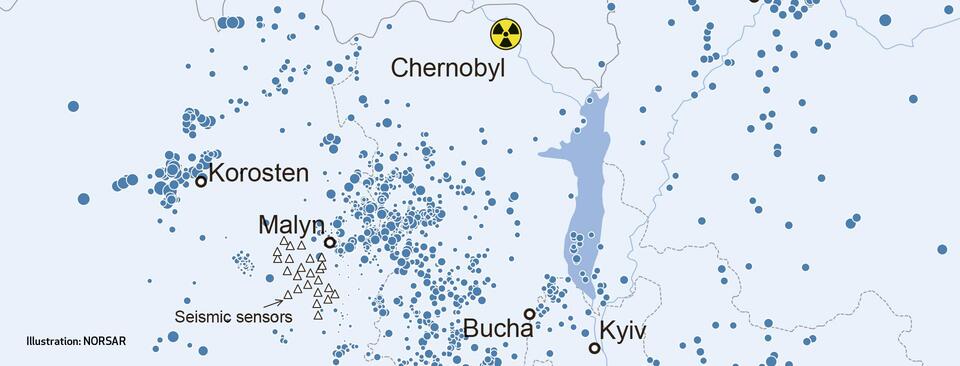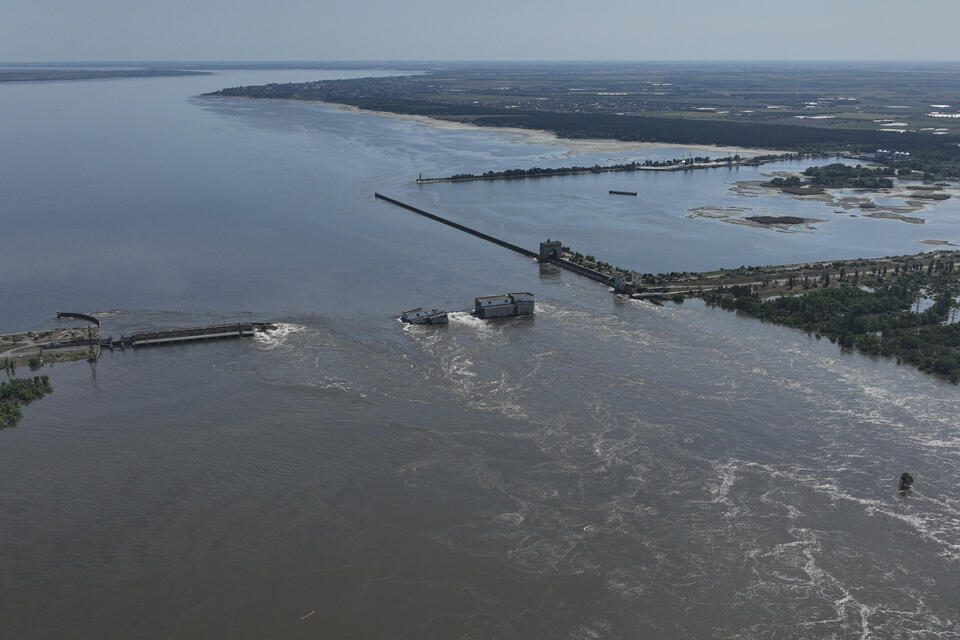Objective War Zone Monitoring with Seismic Data

The data in the global network of seismic stations has proven useful in obtaining objective information from events in an active conflict zone. In 2023, NORSARs expertise in seismic monitoring was used to map real-time explosions connected to the war in Ukraine. This technology provides a unique insight into an active war zone and demonstrates the potential for improving conflict monitoring.
Relying on the extensive international network of seismic monitoring stations, NORSAR researchers have observed and analyzed seismic signals originating from explosions in Ukraine since the outbreak of war in February 2022. We have established automatic surveillance of the nuclear power plants, and we assist the Norwegian Radiation Protection Authority (DSA) on by reporting detections of explosions in the vicinity of nuclear reactors.
In August 2033, NORSAR Head of Department for Test Ban Treaty Verification, Ben Dando, together with colleagues from NORSAR and Ukraine, published a research article in Nature, describing the results of the first nine months of war monitoring. The documentation showed a higher number of explosions than publicly reported attacks, demonstrating its value as a unique source of independent, neutral information. The article was followed by an extensive feature in The New York Times, highlighting how this technology can improve future conflict monitoring.
NORSAR’s seismologists have also analyzed seismic signals from seismic signals from explosions at the Kakhovka dam near Kherson, Ukraine, From Kakhovka, we were able to identify two explosions, including their time and location, which were potential triggers for the dam collapse.

The Kakhovka dam after the attack in June 2023. Photo: AP/NTB
In 2022, NORSAR worked with Nordic colleagues on the analysis of the explosions from the Nord Stream 1 and 2 gas pipelines in the Baltic Sea. After further analysis, in 2023, we were able to draw additional conclusions regarding the details of the explosions, as evidence of at least four explosions was documented. Our findings were presented in a write-up by The Guardian, following their visit to NORSAR’s facilities in September.
NORSAR's experience in utilizing seismic data for monitoring acts of war is not just a testament to our expertise but also to our commitment to contribute to truth and objectivity. The information gained is critical for supporting investigations into violations of international humanitarian law and for effectively monitoring any future ceasefire agreements. In addition, by rapidly identifying attacks on critical infrastructure, such as nuclear power plants, mitigating actions can be put in place that will save lives.
